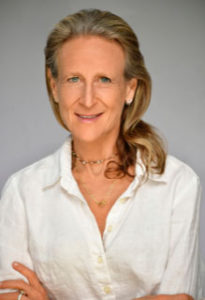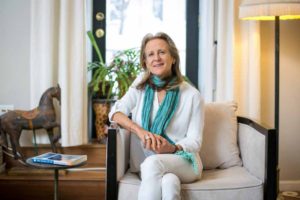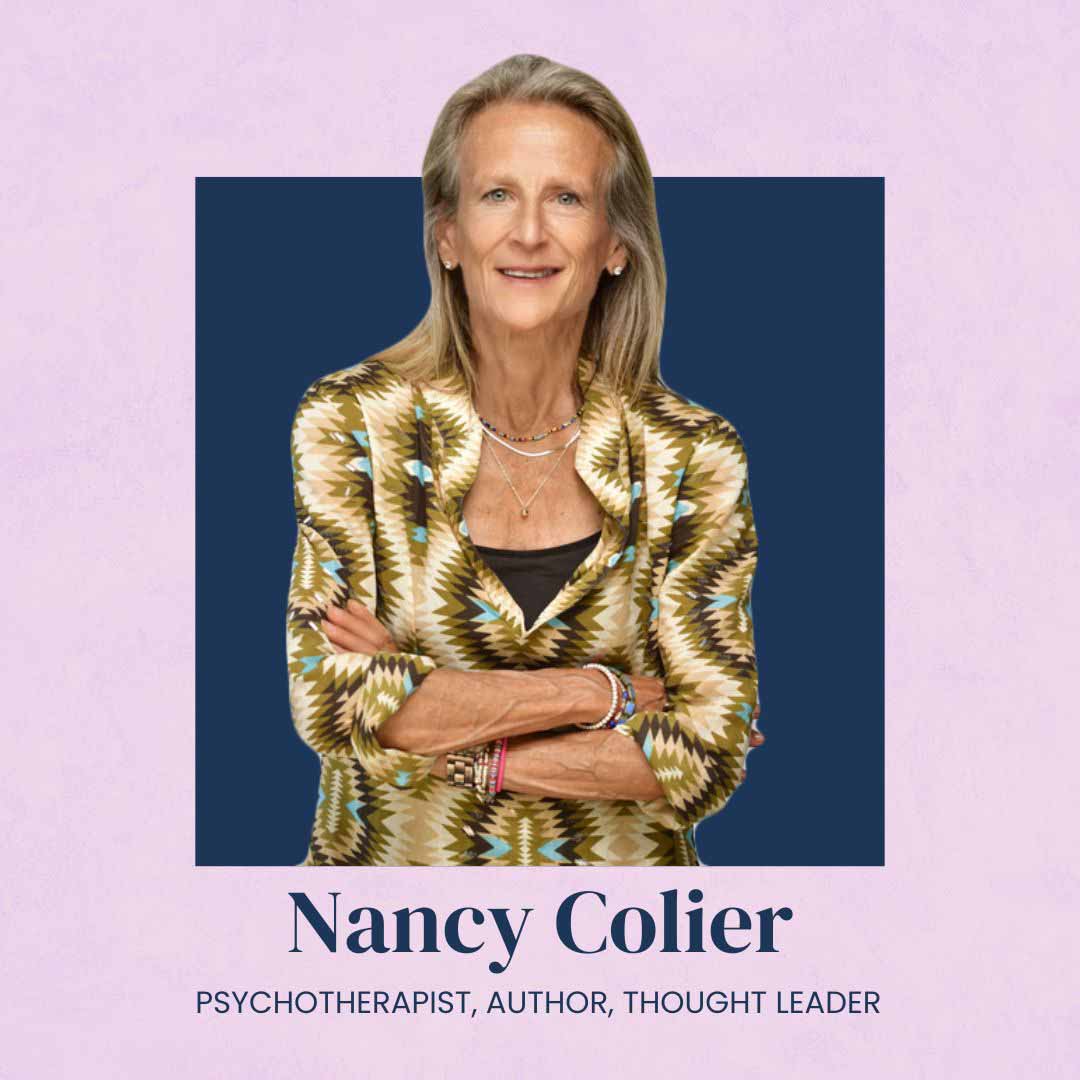CATEGORIES
Breaking Stereotypes | Careers | People We Admire | Women EmpowermentOverview:
- Nancy Colier talks about how her childhood was shaped by intellect and desire to please as a woman, leading to conflict resolution skills.
- Values of curiosity and non-judgment became a guide in her career in therapy, writing, and ministry.
- Starting the day with deep breaths, intention setting and creative time creates a sense of mindfulness for her.
- Young girls must prioritize personal truth and break free from the cage of being likable.
1. Can you share about your childhood experiences that have influenced your career path and shaped who you are today?
I grew up in an intellectual family in New York City; the mind was the first thing I would go to for answers, which certainly took me far in life and continues to do so. But what came at the cost of being mind-oriented was that I lost touch with a part of my experience, the part that comes from my body. The combination of being intellectually focused and also trying to be liked and accepted, as women do, made for a less-than-full version of myself.
I became a very likable person, sometimes to my own detriment; I became a giver, likable at all costs to make things work. I was the one who made everything work. In my early experience, I cut off from some of my own fundamental truths, desires, and drive, to maintain the peace.
2. What are your most important life values and how have they contributed to the progression of your career?
My deepest values are curiosity and non-judgment. Growing up, I was often told about my own experience, what my truth was, and its meaning. Being told who I was rather than asked shaped me fundamentally, and I became committed to understanding other people’s experiences and giving others the opportunity to speak their truth without judgment or interpretation. To know another human being, we have to offer them the willingness to listen, with curiosity, kindness, and without judgment. I always thought “Who am I to say what’s right or true for another human being?” The willingness to give someone the space to have their own experience is infused into every part of my career, whether as a psychotherapist, an interfaith minister, or a writer.
3. How do you typically start your day to cultivate a sense of mindfulness?
I like to start my day with a few deep breaths, touching into my body, and simply remembering that my body is here. Here not just to transport my head around for the day, but here with its own wisdom and experience. I try to spend at least 30 minutes in a creative space, whether that’s writing or something else because the mind is so fresh and uncorrupted in the morning. I will admit, my guilty pleasure is coffee, so I immediately hit the coffee.
Sometimes I’ll set an intention for the day in the sense of—what do I want to bring into the world today? Is it kindness or curiosity? Is it openness or wisdom? I do have the sense to view the day as a privilege, and I take that seriously when I get up in the morning, after which my phone is welcome to go about my day.

4. Do you have any mentors, advisors, or role models that motivated or inspired you to become the person you are today?
We all need mentors, and I’m now reaching an age where I am that mentor, which is sometimes amazing. In my field, Jan Bronson, a psychotherapist, is a mentor and someone to whom I still sometimes go for guidance. Also, Tara Brach, a psychologist whom I deeply respect and who writes a lot, is also a spiritual teacher. Harriet Lerner is another psychologist and mentor for me. In truth, we can have mentors that we don’t know personally as well, and they can be of great value to us if we see them as someone we want to grow into and become. Mentors are so important in our journey.
I’ve experienced a lot and helped many people, but there is great benefit in asking for another person’s guidance and perspective. When we have somebody who understands our experience and wants us to expand, we grow exponentially. I often look for people I admire and I also often reach out to them, just for their thoughts and wisdom. It’s amazing really, how willing people are to help a person coming up in a field, no matter where we are in our field. Even people we think we shouldn’t contact, that they will be bothered by us reaching out, more often than not, they jump in and are happy to help us. People are far more generous than perhaps we imagine.
5. What are your interests or passions outside of work that make you happy?
What makes me passionate outside of work are my daughters. They are my heart walking around on the earth. They delight me and I love watching them become strong women. I love animals as well. I’m a big horseback rider and spent a lot of years professionally riding full-time. I’ve always been an equestrian, and I love my dogs.
I’m also very involved in spirituality, specifically in Buddhism and a practice called non-duality. I enjoy walking as well. Walking for me is a non-negotiable, I have to do it every day. For me, it’s a space to feel my feet on the ground, to get clear on what’s happening, to just walk and see the light coming through the trees and all of it. Moreover, it’s already a privilege to be interested, to have a drive, so, it’s all integrated.

6. What is a quote/mantra that resonates with you?
If you saw my office, it’s just papered with post-it notes of great quotes. Quotes are really like us, we think them to be fixed but their meanings are changing all the time.
For a specific day, it’s a kind of portal or a doorway to a direct experience, and then you might try that quote, three or four days later and it doesn’t open that door. Some quotes that opened this portal for me are,
“That which is perceived cannot be the perceiver.”
“Stop searching. It’s already here.”
It’s so beautiful to hear because we’re always trying to get somewhere else, to be in a better place. But the sense that we could just take a backward step and that this gem of ourselves is already here is fundamental.
7. If you could impart a single piece of advice to the younger generation what would it be?
We grow up in this culture of not being enough. As women, we are always programmed to do better—be prettier, thinner, smarter, more successful, but, not too successful, or too smart. We know that as women. So, to remind young women, you’re already enough just by being. At the end of all of this seeking, you’re going to find out you have the answer. You’re going to end up back home with an incredible sense of honor, compassion, and a sort of power in returning home to yourself.
8. What has been the greatest challenge in your journey and how did you overcome it?
As a woman, the greatest challenge for me has been breaking out of this likability cage. And discovering that what I want matters, that my truth belongs to me and it matters. It doesn’t matter what anyone thinks, but your truths stand and it’s not just about making other people happy. Abandoning ourselves paradoxically in order to take care of ourselves, because we think if we take care of the other, we’re really taking care of ourselves.
I think the advice that I would give, because that’s been a challenge that took me some decades to realize, is just because I want it, just because I experienced it, just because it’s my truth, it matters. And, I’m allowed to make choices from that place.
9. What does success mean to you personally and professionally?
I love when my books sell and it’s exciting to me when I get big numbers on that, but I think of success at a more personal level.
For example, at the parents and teachers meeting at my daughter’s school, the teacher asked me if I was going to chair the committee or do the bake sale thing. And I said, no. And she asked why not. I said, “I don’t want to,” and then I stopped speaking. I just delighted in that awkward silence of, I’m not sorry, and I am not going to give you a thousand reasons why you should think that’s justifiable. I just stood there and it might be silly, but for me, that’s a success. It’s just to own my own truth and not apologize for it.
Another example is from when my daughter was a bit younger. She had some shoes that the other girl loved, and the mom said to me, “Oh, you know, we love your daughter’s shoes. Where’d you get them?” And I knew my daughter was the only one in the class that had them. My first instinct was to say, “I don’t remember where I got them.” My daughter piped up and she said, “Oh, we got them at Gallagher’s, but if you get them, I would prefer if you got them in a different color, ’cause I want to be the only ones with the red ones.”
I thought we’re raising a different generation and that she had the right to say that. It made me burst into tears. It’s okay to want to be the only one with the red shoes, and their mom was about to lie to make them comfortable, right? So sometimes our young children are also our teachers.
10. Can you let us know your process when you start writing a book?
For me, writing is a discovery process. Like when you’re in a relationship, they’re like laboratories because every day, there’s a moment that you’re completely perplexed and not understanding something completely.
So I have to be curious about the thing that I’m writing about. Eventually, it nags at me, and it’s always been my process. Some people don’t use words, they don’t write to get clear, they do other things to get clear. But for me, writing has always been a way that I find answers. I find the kernel of what’s interesting to me in it. I’m working on a book specifically on embodiment because I see so many women and men that are untethered here, and why we are so trained to leave this organism, but I have to not know where I’m headed. If I know it I’m bored, and then I’m just writing a book report. So I’m drawn to when I’m stopped by something. Let me go write about it and research, I love that process.
Conclusion:
Nancy’s journey reflects the importance of finding one’s own truth, especially for women who are often trapped inside a cage, the cage of needing to be liked, which makes them forget to prioritize and consult with themselves. Her childhood made her realize that there is no single truth and that everyone must be given space to find their own truth. Through mindfulness and self-awareness, she continues to inspire others to embrace their authenticity and find fulfillment in their own unique journey.


